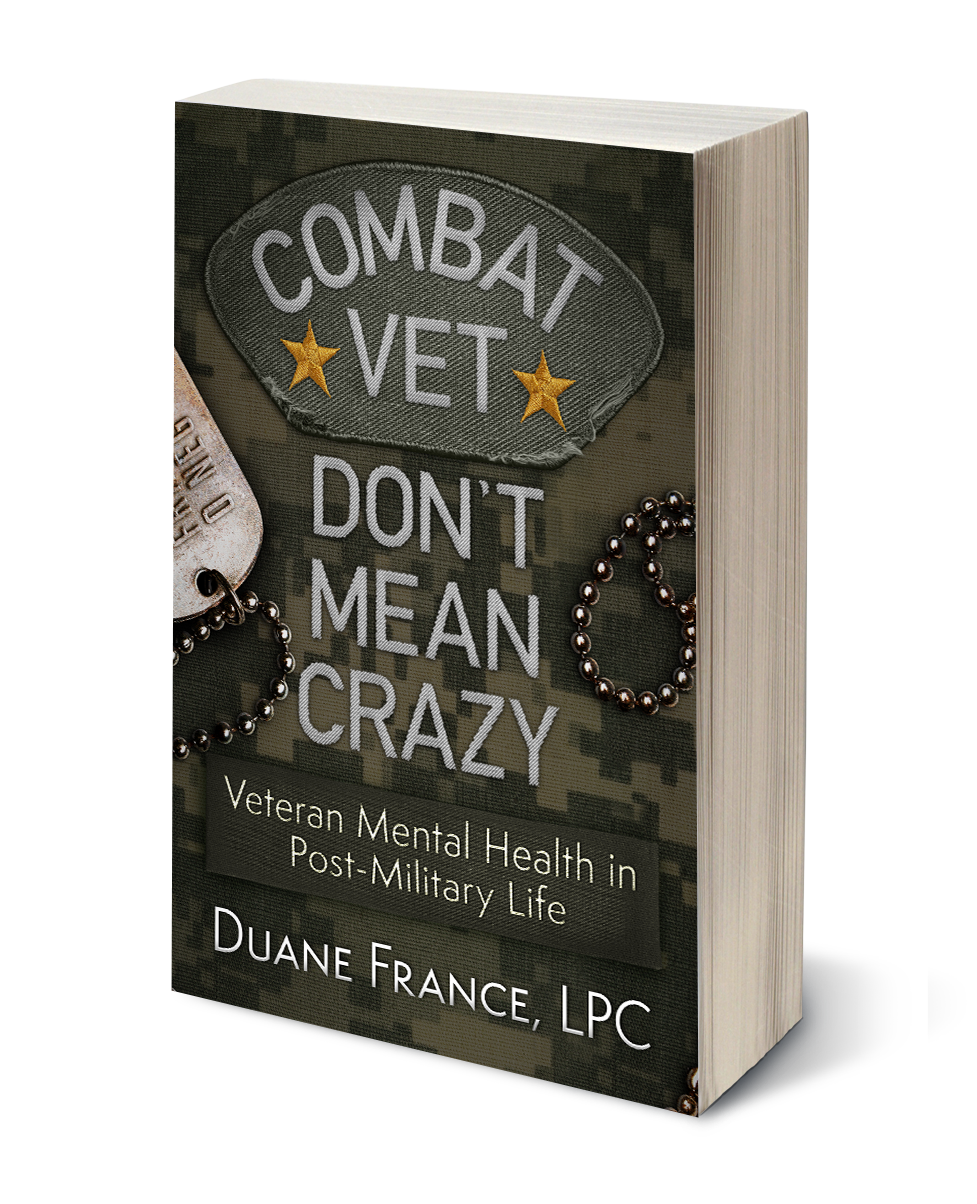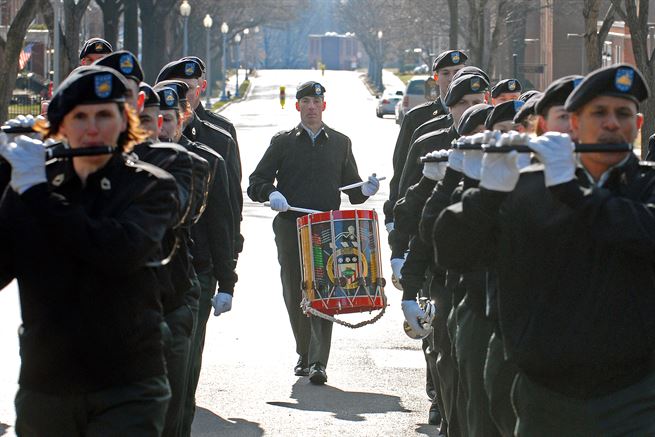
This is the third of a series of posts looking at how to impact the veteran suicide epidemic using a public health approach. You can see the original overview post here.
I have seen this over and over again: a veteran’s psychological wellbeing is directly tied to their economic wellbeing. It’s a critical aspect of post military life: how not just to pay the bills, but survive and thrive in our post military lives.
Some of the challenge is that this wasn’t that big of an issue when we were in the military. Sure, the pay wasn’t great, but it met our needs…especially when other things were provided for us, like a housing allowance, or a barracks room. Separate Rations, as in extra money for food, if you were married, or a meal card if you weren’t married. Again, the food might not have been outstanding…sorry, food service folks…but at least it was plentiful.
When we left the military, however, we had to figure out how to meet those needs…housing, finances, basic necessities. These were old needs that we needed to figure out how to meet in new ways. How do we plan for retirement? I know it’s a long way off when you’re twenty-seven, but what happens when we turn sixty-seven? Or eighty-seven?
When it comes to making an impact on veteran suicide, we have to understand that there is an economic aspect to it. A big reason for divorce? Finance. A leading reason for veteran suicide? Financial crisis. If we can support veterans in developing economic stability, then perhaps we can prevent suicide from being an option in the first place.
Employment Security
One of the biggest questions after leaving the military…what next? Even after “retirement,” you have to find work to pay the bills. Unless you are a very high ranking officer, you couldn’t really “retire,” as in do nothing but play golf when you want to and putter around the house. You really wouldn’t want to do that, anyway, and you’d be doing both yourself and your community a disservice.
But what does that mean? We often talk about needing to find something meaningful after leaving the military, something that provides us as much purpose and meaning if not more. That’s all well and good, if you have the savings to take your time and look around; but if
Being employed is a significant factor in the psychological wellbeing of veterans. We want to feel like we’re cointinuing to contribute to our communities. To be useful. I know some veterans who do say they want to sit at home and do nothing and not have to work…until they try it for a bit. Then they realize that it’s not all that it’s cracked up to be, and they start looking for stuff to do.
Employment limitations are not just due to psychological concerns, of course. One study that reviewed veterans with severe spinal cord injuries found that over 72% of employment-seeking veterans had no employment after being injured, even though studies show that people with severe spinal cord injuries report greater life satisfaction compared to those who don’t work after their injury.
Financial Security
Money makes the world go round, right? It’s not just being able to pay the bills right now, but planning for the future. Education for our kids, because we always want our kids to have the stuff we didn’t have growing up. We want to lift them up the way that our parents lifted us up, if that happened, or not have to lift themselves up the way we did if our home life wasn’t that great.
The problem is, we don’t talk about financial wellness in the military, just like we don’t talk about psychological wellness in the military. In a 2013 study about veteran homelessness, when it came to financial stability,
veterans face an array of barriers, including lack of stable employment, inability to budget and make ends meet, limited financial knowledge, poor judgment in making financial decisions, and lack of material security. These financial factors can exist independent of mental health diagnoses and other risk factors previously mentioned, outlining the need to investigate the effects of these financial factors on homelessness.
In another study looking at determinants of veteran suicide, veterans that reported the presence of suicidal ideation over the past year had significantly more financial problems than veterans who did not report suicidal ideation. This is not to say that financial instability is the only reason that a veteran engages in life-threatening self-harm, but it is a significant factor.
Housing Stability
I saw this firsthand when I was working in a program that supported homeless veterans. For eighteen months, I worked as the program director for The Crawford House, a nonprofit that supported the local Department of Veterans Affairs with housing for homeless veterans and for veterans attending a local substance abuse treatment program. There were a lot of resources available in the community, and sometimes it took some help to navigate the resources, but they were there.
We could connect veterans to the local Workforce Center, in order to address employment. We had access to organizations that could help veterans, both male and female, get professional business attire. Job coaching, benefits, shelter for a limited time, case management…it was all available. Unfortunately, the capacity in the program was limited, and could support only a fraction of the number of homeless veterans in our community.
One thing that we could not provide was mental health counseling. I’m not saying that every veteran who is homeless needs therapy, but substance abuse and undiagnosed and untreated mental health conditions are prevalent in the homeless population at large, and the homeless veteran population in particular.
Suicide Prevention is Everyone’s Job
If you’re someone who addresses ecnomic factors in a veteran’s life, whether it be housing, employment, or finances, you play a critical role in reducing veteran suicide. If the veteran is in financial crisis, they are likely in psychological crisis, as well. And it’s not just as easy as solving the immediate problem and calling it good; once the economic stability is achieved by the veteran, there may be other things that crop up. Problems crop up in everyone’s life, not just veterans; addressing life challenges can be like fighting the seven-headed hydra; once you cut one head off, two more appear.
Anyone who could potentially come in contact with a veteran can and should undergo training to learn the warning signs of suicide. You may think that it’s out of your wheelhouse, or not in the job description; but you’d be wrong,
It’s in all of our job descriptions, whether we like it or not. Ask the question. Provide the support. Do what you can with the skills that you have, and let the veteran know that they’re not alone. Ever.
Do you want to help offset some of the costs of the Head Space and Timing Blog and Podcast? Want to show your appreciation and support? You can put some paper in the tip jar by going here or clicking the button below
Want to keep up with all of the Head Space and Timing content? Subscribe Here
 Want to learn more about veteran mental health? Check out the latest Head Space and Timing book
Want to learn more about veteran mental health? Check out the latest Head Space and Timing book
Check out what people are saying about it:
Overall ‘Combat Vet Don’t Mean Crazy’ is a very well written, thought-provoking book. As usual, SFC France did a fantastic job! Being a combat veteran myself who has served in both Iraq and Afghanistan, I feel there’s a lot of powerful information and tools in this book that you can put to use immediately – even as you’re reading this book. Definitely an excellent read on those days of rest and/or distress. – J.C.



1 Comment
GRAY, Wm. Allan · May 1, 2019 at 9:30 am
ALL important points you’ve raised here Duane. Hopefully your series of useful Articles on these key aspects of Veterans’ Wellbeing will continue to provide valuable Insights as well as a “how to” now GO FORWARD checklist for Veterans, our Family Members and our Caregivers.
Achieving then Maintaining some degree of “Balance” in our Post-Military Lives is crucial in order for us to again be Successful – you’ve spotlighted this again in today’s Article / HS&T post.
Keep up ALL your great work Duane – not only are yiu making a difference, you are helping to Save Veteran’s Lives.
Comments are closed.